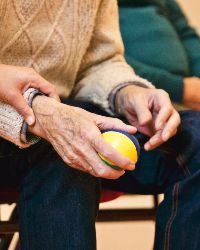An anxiety attack sometimes referred to, as a panic attack can be a very terrifying experience. The symptoms of anxiety attacks can be very confusing as usually the person has no idea as to why their body is reacting in the manner it is.
If you have experienced some of these unusual symptoms (below) while experiencing anxiety let me help you to understand it better and try and put your mind at ease. Firstly anxiety attacks are very treatable. It is very important that you speak with your doctor if you are experiencing these anxiety attack symptoms in order to receive an accurate diagnosis. Getting your anxiety symptoms investigated after you first experience them will help reassure you that nothing more serious might be wrong.
So what are the typical anxiety attack symptoms?
Physical Symptoms of anxiety attacks
- Palpitations
- Pounding heart, or an accelerated heart rate
- Sweating Trembling or shaking Shortness of breath
- A choking sensation Chest pain or discomfort
- Nausea or stomach cramps
- A feeling of being dizzy, unsteady, lightheaded, or faint
- Derealization (a feeling of unreality) or depersonalization (a feeling of being detached from oneself)
- Numbness or a tingling sensation
- Chills or hot flashes
Emotional Symptoms of Anxiety
- Fear of losing control or going crazy
- Fear of dying
- Feelings of apprehension or dread
- Trouble concentrating
- Feeling tense and jumpy
- Anticipating the worst
- Irritability
- Restlessness
- Watching for signs of danger
- Feeling like your mind’s gone blank
These are some of the possible symptoms of a anxiety attack but what does it actually feel like to experience one? Usually an anxiety attack begins with an unusual bodily sensation from the list above. The person then reacts with fear that the symptoms are indicators of a much more serious threat and in turn reacts with more fear which escalates into a state of heightened anxiety. A vicious cycle of anxiety and fear can begin.
Typical situations people report having an anxiety attack
- Driving
- Airplanes
- Crowded areas
- At Night while sleeping
- Meeting new people
- Being the center of attention
- Being watched while doing something
- Making small talk
- Public speaking
- Performing on stage
- Being teased or criticized
- Talking with “important” people or authority figures
- Going on a date
- Making phone calls
- Using public bathrooms
- Taking exams
- Eating or drinking in public
- Speaking up in a meeting
- Attending parties or other social gatherings
Often anxiety attacks occur in a situation where the person feels they cannot exit easily from such as a meeting, or out socializing with others. Many can also experience an anxiety attack for no apparent reason while at home or in the middle of sleep.
People who first experience these symptoms feel a sense of foreboding and that there is something terribly wrong with their health. This is understandable as anyone who has experienced an anxiety attack can tell you how unusual the bodily sensations are.
What initially may have been a once off 'out of the blue' anxiety attack, can develop into a perpetual cycle of fear and anxiety if not treated. This cycle can last from weeks to years depending on how much help the person receives. I want to point out that anxiety attacks are not a mental illness. The great news is that this disorder is very treatable. You do not have to fear you will spend your life living with this condition.
More often than not, the symptoms of anxiety attacks cause people to worry that there is some larger problem lurking behind the unusual sensations. If you have experienced anxiety attack symptoms, do not convince yourself that you have a clinical illness. You do not. Experiencing anxiety attacks and their associated symptoms does not mean that you have a physical or mental illness. Your brain is fine your body is fine. You can return to a more relaxed level of living if you follow the steps and psychological techniques I am going to outline for on this site.
Learn to trust is your body. Yes it may be experiencing a wide range of strange anxiety attack symptoms but it is well able to handle this. During an anxiety attack, many of the symptoms are similar to those of a really good workout:
Increased heartbeat rate Sweating Increased bodily sensations Rapid breathing You do not become fearful of these symptoms while exercising and therefore you should not fear them should they be present while experiencing anxiety. The fuel that really drives the anxiety symptoms is anxious thinking. The "what if" thoughts that appear during an anxiety attack create the powerful drive that fuels the anxiety much longer than it would normally last.
In order to extinguish the fuel that drives the anxiety attack we need to eliminate these anxious thoughts. Tackling anxious thinking effectively requires a two-pronged approach. To eliminate the negative thinking patterns, there needs to be a shift in attitude along with specific visualization tools.




